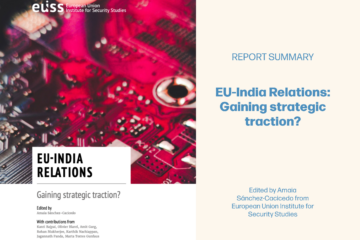Report Summary: A Wake-up Call for a European Security Provider?
By Sofie Hansen
Summary:
The Russian invasion of Ukraine was described by High Representative Josep Borrell as a “geopolitical wake-up call.” Moreover, in a new reality where European security is undergoing significant changes, Denmark’s opt-out has ended, and the security referendum has been abolished. In this context, this report analyzes two main subjects: first, how the EU’s Common Security and Defense Policy (CSDP) has evolved in this climate of conflict and collective defense needs, and second, how the Russian-Ukraine war has impacted European security policy.
The report presents the various mechanisms of the EU, alongside a brief historical overview of how these establishments came into being. It also outlines the interdependent mechanisms and discusses the strategic interaction between EU management and member states. After addressing these subjects, the report then later engages in an analysis of European security going forward, proposing two potential strategies for strengthening it: one focused on autonomy and the other on global collaboration. The autonomous strategy emphasizes greater self-reliance and capability within the alliance, while the global strategy centers on collective efforts and international support.
Key points:
- The removal of Denmark’s security referendum occurred during a period of rapid development within the CSDP in Europe. As the EU seeks to optimize its security and defense capabilities, Denmark’s newfound participation in shaping the future of EU security is both timely and can potentially also be advantageous.
- The potential for another presidential term under Donald Trump, coupled with concerns that NATO may reduce its defensive support in the future, have resulted in some member states growing worrisome. However, the overall assessment remains that even if the EU focuses on an autonomous approach, it will not be able to replace NATO. Therefore, the EU’s CSDP must continue to be strengthened, particularly given the current security climate, to complement NATO’s efforts.
- The Russian invasion of Ukraine and the subsequent war have created a new reality on European soil. Therefore, the EU must continue to invest in and support defense initiatives. However, due to past political decisions, the EU’s defense and security mechanisms have, up to now, faced challenges in responding effectively to the demands of this new environment. The united support towards Ukraine became the first step away from these previous challenges.


